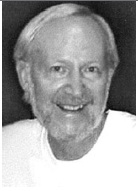On Sept. 11, 2001, I had just finished attending a Jungian talk about conflict in couple relationships at Muswell Hill in North London when I heard the news about the World Trade Center atrocity. I returned to central London where, as fate would have it, I was scheduled to see two separate Arab clients that afternoon about problems in their relationships.
Both called almost simultaneously to ask if I still wanted to keep the appointments, considering the events that were unfolding in New York, and said they understood if I wanted to cancel.
Actually, I never considered canceling. It wasn’t an option. There was only one choice—see my clients—even more so because of the implication of their calls. I told them both to come as scheduled. They were surprised at my immediate affirmative response and said it was all right for me to take time to reconsider. But there was really nothing to consider. “You are my client,” I said to each of them, “Nothing has changed about that. I’ll see you as arranged.”
They arrived at their appointment times, and both felt the need to condemn the violence in New York as their sessions started, especially the deaths of innocent people. Then we continued with the individual reasons for their sessions.
At that time in London most of my Arab friends deeply regretted the actions of the hijackers who flew those planes into the WTC, and they repudiated the atrocity. But the actions of these hijackers also engendered passionate debates about American policies in the Middle East.
A number of issues were debated, including Afghanistan and Iraq. But one central point on which all the debates revolved was the need for the United States to more actively support an independent Palestinian state in Gaza and the West Bank. They felt this would eliminate a lot of ill will against Americans. In fact, some Israeli friends living in London agreed with this point of view.
In response, I also mentioned the need for Arabs and Palestinians to fully recognize the right for Israel to exist and live in peace, and the cessation of all terrorist acts against Israel in order to start a meaningful dialogue between the two sides. But acts of violence against Palestinians must stop too.
Moderate Arabs and Palestinians admit that accepting Israel is the only way to come to a real long-term solution, but other parties are not convinced or will not listen to this, and they feel that violence must be a part of the political leverage to achieve what they want. Besides, they say, what is a terrorist to some, is a hero to others.
In Europe, many psychotherapists have been challenged to come to grips with terrorism and the conflicting issues and emotions around what constitutes terrorism and who is a terrorist. Einstein once asked Freud: “Why war?” Today we need to ask ourselves “Why terrorism?” Freud promised Einstein to look into the origins of what makes war happen.
Today, the task of the psychotherapist is to look into the reasons behind the origins of modern terrorism, so the motivating factors can be understood and hopefully redirected towards peaceful outcomes. But, terrorism is a complex issue and is not so easily defined. Its origins often lie in historic and political contexts which give violence “ethical legitimacy and political justification,” according to Daniel Widlocher, a French psychoanalyst.
…it is necessary to understand
the processes of hatred that
create a terrorist..
Widlocher and others in his circle have attempted to understand the psychological mechanisms and the effects of terrorist acts in order to propose ways of protecting people and social groups from a fascination with the terrorist act and from destructive effects on the psyche.
Sverre Varvin, a Norwegian psychoanalyst, says that, instead of looking for the characteristics of individual terrorists, it is necessary to look beyond that at the preconditions for terrorism and the basic human preconditions for the use of dehumanizing violence. This is necessary in order to understand the terrorist and what is called the terrorist’s mindset.
Varvin says the psychotherapist must also go beyond Freud and look into political science, sociology, history and anthropology if answers are to be found for terrorism.
This is not meant to excuse or agree with force or violence, but it is necessary to understand the processes of hatred that create a terrorist if we are to change the individual or the group from which he or she arises.
Varvin believes that violence can only be prevented or eliminated if the individual and group’s dignity can be restored. Political decisions must be based on reflection from multiple perspectives that can achieve more lasting and humane solutions.
In the 1930s, Freud warned Einstein about the dangers of a peace built on the supremacy of just one power. If we are to eliminate terrorism, it must be a collective effort, which also includes the people who feel oppressed.
When I first went to the Middle East 30 years ago, I visited many refugee camps. The children living there were not being given alternatives or hope to extremism and violence. They were being trained to use AK-47 machine guns.
It didn’t require a degree in psychotherapy to realize then that if something concrete was not done to show these children their dignity and future were being thoughtfully and meaningfully considered, they would start looking for alternatives of their own against forces and policies they didn’t understand or felt were unfair.
The leaders of the intifada, the rebellion against Israeli occupation of Palestinian territories, are the children I met in those camps. We must meaningfully develop ways to help the next generation of children to find alternatives to violence, or the cycle will continue.
It is not an impossible dream to live with our Arab friends as brothers and sisters, but an effort must be made to look at all perspectives to achieve this. We must be willing to listen, to talk, to find dignified and just solutions for everyone.
My Arab clients in London continued seeing me for a year until we came to some resolution of their personal problems. Perhaps we developed a relationship based on trust and mutual respect, elements which are essential in all conflict resolution.
On the other hand, the last time I was in Israel, I attempted to bring some Palestinians and Israelis I knew together for a conference to discuss ways through the intifada. I failed to achieve anything, and the conference never materialized for a variety of reasons on both sides of the equation.
One sympathetic Palestinian friend tried to comfort me, saying, “Now is not the time, David.” I asked, “If now is not the time, then when?”
There was no reply.
David Tharp is a writer, medical journalist and psychotherapist. He recently helped translate and edit a book about the Islamic history of Japan and reported extensively on the Middle East, particularly about Palestinian issues in the 1970s and 80s.









